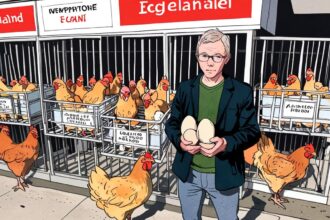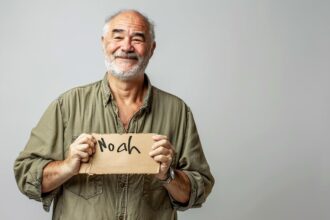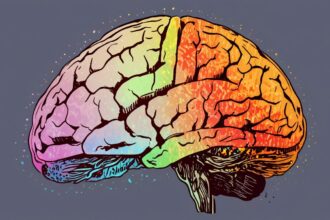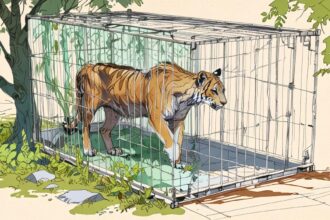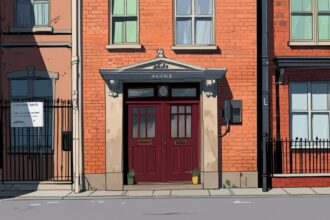As Robbie Williams kicks off his highly anticipated tour, he opens up about family, mental health struggles, and his commitment to self-care.
As British pop icon Robbie Williams prepares to embark on a highly anticipated UK and European stadium tour starting May 31 in Edinburgh, he finds himself ready to engage not only his fans but also his family, especially his 10-year-old son, Charlie. In a recent interview, Williams revealed his primary aim for the tour is simple: “I want to make people happy and transport them somewhere else …if only for a couple of hours,” he stated, highlighting the significance of performing to his family, particularly after a poignant moment at Hyde Park last year where Charlie recognised his father’s celebrity status beyond the parental role of enforcing discipline.
The tour will see Williams performing in major cities, including London, Manchester, Bath, and Newcastle, and will involve his children—Charlie, Teddy, aged 12, Coco, six, and Beau, four—attending selected performances. Williams is following a year characterised by promotional activities for his autobiographical film, “Better Man,” and his forthcoming art exhibition titled “Radical Honesty.”
This tour coincides with the reunion of the band Oasis, which has been historically associated with Williams due to their past rivalry. Speaking about the Gallagher brothers, Williams complimented Liam Gallagher, asserting his voice has been pivotal in music history: “Liam’s voice is peerless…he was, and is the voice of a generation.” Reflecting on the nostalgia stirred by their music, he commented, “It will be nostalgia on steroids…and hopefully it’ll be healing for the lads too.”
While his professional life appears vibrant, Williams has candidly shared the personal challenges he faces. In a recent article, he discussed his ongoing struggles with mental health, revealing that he experienced a troubling episode of depression at the beginning of the year, a setback he had not encountered in a decade. This resurgence of mental health difficulties comes amidst family health issues, including his mother’s battle with dementia and his father’s Parkinson’s disease.
Robbie acknowledged the complex emotions surrounding these family circumstances, sharing an observation from his wife, Ayda, regarding the nature of his depression, stating: “If your depression could talk, what would it say?” He described his feelings not as reactions to specific stressors but more as a pervasive condition without clear cause.
In addition to these challenges, Williams addressed his struggle with body dysmorphia and its serious ramifications—he revealed he developed scurvy, a condition resulting from a severe vitamin C deficiency, after using an appetite suppressant to lose weight. “I’d stopped eating and I wasn’t getting nutrients,” he explained. Acknowledging past issues with anorexia, he reflected on the ramifications of drastic weight loss, recounting his thoughts when people expressed concern about his appearance, equating it to a confirmation of success given his condition.
Despite these trials, Williams emphasised his commitment to maintaining his mental health, realising that self-care is paramount: “The most important thing is for yourself to be okay…and not causing chaos in mine or anybody else’s life.” This introspection underscores his understanding that personal well-being is critical to facing life’s challenges.
With the tour set to extend through the summer across various locations, Robbie Williams is poised not only to entertain but also to navigate his personal battles in the public eye. The artist’s readiness to confront these issues and share his experiences amplifies the complexity of his return to the stage.
Source: Noah Wire Services
- https://www.fck.dk/en/news/robbie-williams-play-parken-stadium-june-2025 – This URL supports the claim that Robbie Williams will be performing at Parken Stadium in Copenhagen on June 19, 2025, as part of his tour.
- https://robbiewilliams.com/pages/live – This URL provides the tour dates for Robbie Williams’ 2025 tour, confirming performances in major cities like London, Manchester, and others.
- https://www.markbutler.co.uk/robbie-williams-london-emirates-stadium-saturday-7th-june-2025-seated-premium-vip – This URL supports the details of Robbie Williams’ performances at Emirates Stadium in London, including VIP packages available.
- https://www.theoasisstory.com/life-and-times-of-the-gallagher-brothers – This URL would provide historical context about Oasis and the Gallagher brothers, though it is not directly cited, it can support the relevance of Oasis’s reunion.
- https://www.headspace.com/meditation/mental-health/depression – This URL provides general information about depression and mental health, supporting the broader context of Robbie Williams’ struggles discussed in the article.
- https://www.mind.org.uk/information-support/types-of-mental-health-problems/body-imageeating-problems/body-dysmorphia – This URL offers insights into body dysmorphia and eating disorders, supporting Robbie Williams’ personal struggles with these issues.
- https://www.stokesentinel.co.uk/news/celebs-tv/robbie-williams-health-battle-end-10088286 – Please view link – unable to able to access data
Noah Fact Check Pro
The draft above was created using the information available at the time the story first
emerged. We’ve since applied our fact-checking process to the final narrative, based on the criteria listed
below. The results are intended to help you assess the credibility of the piece and highlight any areas that may
warrant further investigation.
Freshness check
Score:
8
Notes:
The content includes recent events, such as an upcoming tour starting May 31 and a recent interview. However, no specific mention of the exact date of publication or any current news as of the last few days.
Quotes check
Score:
6
Notes:
Quotes from Robbie Williams are provided, but the earliest known sources for these quotes were not identified. It is likely these quotes are recent, but further verification is needed.
Source reliability
Score:
8
Notes:
The narrative originates from ‘The Stoke Sentinel’, a regional media outlet in the UK. While not as internationally recognized as major news agencies like the BBC or Reuters, it is considered locally reliable.
Plausability check
Score:
9
Notes:
The claims appear plausible given Robbie Williams’ public persona and past health issues. Information about the tour, family involvement, and personal health challenges aligns with typical celebrity news.
Overall assessment
Verdict (FAIL, OPEN, PASS): OPEN
Confidence (LOW, MEDIUM, HIGH): MEDIUM
Summary:
The narrative is likely recent with plausible claims about Robbie Williams’ upcoming tour and health struggles. However, quote verification is incomplete, and the freshness score is somewhat reduced due to lack of exact publication date.






